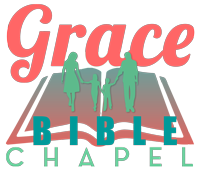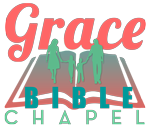A few days ago my wife and I spent a few hours with a wonderful Christian couple. They were truly an encouragement to us and are an example of a couple whose entire lives are dedicated to the Lord.
What is special (to me) is that this couple comes from a side of evangelical Christianity that would be highly frowned upon by many in the assemblies. Yet here they were just shining the light of Christ in their lives.
Using words as darts against others
There are a number of words that get used regularly that mean different things to people. Some of those words are traditional, conservative, progressive, liberal, open, closed and legalistic.
Most people, when they use these words, use them to label themselves or others with specific criteria. For example, if an assembly has a “dress code” where believers dress up for the meetings, they might be called conservative. If an assembly has a “praise team” they might be labeled liberal.
Defining terms
It would be good for us to work together to define terms so we are all of the same understanding. Here is a stab at my own definition of these terms.
TRADITIONAL: A view and adherence to a pattern or set of practices that hold to what has been done in the past. It focuses more on staying the same and keeping that pattern with little or no change desired.
CONSERVATIVE: A view of the orthodox beliefs of the church; doctrines that have been carried down through the generations and are not negotiable or changeable. These doctrines would be shared by most evangelical conservative churches.
PROGRESSIVE: A view that allows change to the pattern or set of practices and is not tied to any historical practice. It focuses on the flexibility in the implementation of the Word of God within the church.
LIBERAL: A view of the Bible and Christianity that does not hold to the orthodox teachings; their core doctrines would be considered incorrect or even heretical by conservative scholars. There would be very few assemblies (if any) that would fall into this category.
OPEN and CLOSED usually indicate whether or not an assembly would accept a visitor to the Lord’s Supper without a letter of commendation or from a group that doesn’t meet the exact practices of the receiving assembly.
LEGALISTIC: A view held within a local church that puts a high priority on man-made practices, often considering them of equal importance to doctrine.
Using the terms correctly
I believe it would more helpful to the assembly movement if we were to use these terms accurately. Hopefully we never need to use the word legalistic at all, but sadly it does fit in some cases.
Conservative and Liberal are opposing views and like I mentioned, none of the assemblies I know would be considered liberal according to the above definitions.
Traditional and Progressive are often put against each other; however, there is a wide range of assemblies that would have both traditional and progressive elements.
Neither of these views in and of themselves is right or wrong as they are non-biblical practices. Each local church needs to determine what the best practices are for their fellowship.
These are some items that I would put into the traditional or progressive categories:
- style of clothing
- use of hymns, songs, and instruments
- format and time of meetings
- number of teachers used (visiting or local speakers)
- paid staff or all volunteers
- sitting in a square or rows, chairs or pews
- many other similar practices
Why does this matter?
The trouble with labels is that they are often used as a way to look down on or attack others. At the very least they are used as a way to separate. Another issue is the problem of incorrect labeling.
I am not against all labels and I use them. For example, I would consider myself a progressive (and open) conservative. What that means to me is that I have a conservative view of the Bible, but I do not put a priority on non-biblical traditions.
Learning to widen our acceptance
Probably the most important goal of assemblyHUB is to help us all see others like God does. As I think about my new friends from “the other side” of the evangelical divide, I further resolve that using labels to divide is not what the Lord intends.
Do I hold the same convictions on practice and doctrine? No. But that in no way should keep me from having a vibrant fellowship with them. If I was to attend their church, I would not agree with everything I observed. But I choose to thank God for them and to enjoy the commonality we share in Christ.
Conclusion
As we think about others in the wider body of Christ, one of my prayers for the assemblies is that we put aside terms that are meant to harm and separate us and focus on building up the body of Christ and serving Him.
Let’s love brothers and sisters in Christ without the need to criticize them. Let’s respect the convictions of others and pray for the work of the gospel in all local churches.
Disclaimer: The views and opinions expressed in this article are those of the author and do not necessarily reflect any other author or an official position of the assemblyHUB team.
Crawford Paul
Crawford is an elder at Rolling Meadows Bible Chapel in Ontario and has a passion for the assemblies. He and his wife Beth serve in various ways within the assembly to build up and encourage the believers. He is president of Legacy Ministries Canada, an organization focused on helping individual Christians, local churches and Christian organizations with financial, legal and governance matters. Check it out at legacycanada.org
Taken from AssemblyHub.com







